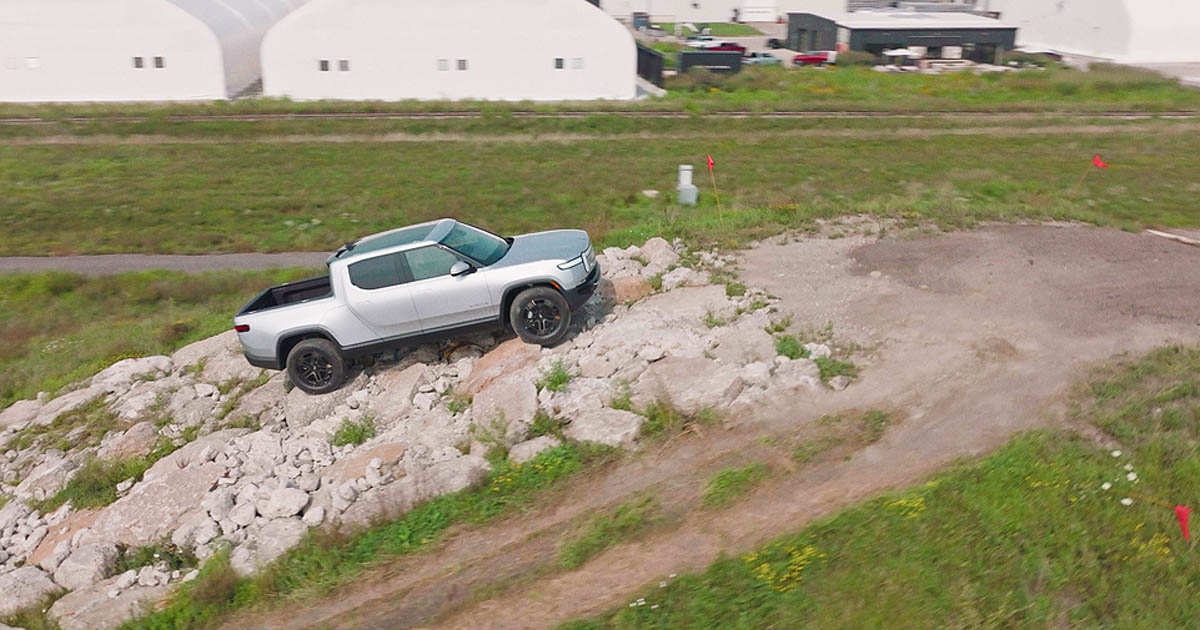
NORMAL, Ill. — Rivian Automotive CEO RJ Scaringe likens the launch of the in-house Enduro electric motor to the EV maker’s start of vehicle production two years ago.
While less important than launching an entire brand, the Enduro’s arrival this year opened up possibilities for the startup, which had been struggling with supply chain shortages and elevated manufacturing costs at its factory here.
“More than just what this motor represents in terms of performance or efficiency or range, it’s also emblematic of the capabilities we have as an organization today,” Scaringe said at the Normal plant last week.
The new drive unit, which incorporates the gearbox and power inverter with the motor, is less expensive to build. It allows Rivian to offer a base model for $8,000 less compared with the third-party motor that Rivian launched with, the company said. The R1T pickup now starts at $74,800, and the R1S crossover starts at $79,800. Both prices include shipping.
And with two motor options now, Rivian has greater flexibility to maintain production if one of them is in short supply.
“If I compare the launch of the Enduro drive unit to what we went through for the vehicles,” Scaringe added, “the predictability of the bring-up has been much more seamless.”
Rivian assembles the Enduro unit in a new 620,000-square-foot addition to the assembly plant, Tim Fallon, vice president for manufacturing operations, said during a media event last week. “Really excited about what we’re doing as we continue to ramp,” he said.
He pointed to Rivian’s forecast that it will more than double vehicle production this year.
“All major components, including the motor, gearbox and inverter, are manufactured in-house for seamless integration and optimized efficiency,” the company said in prepared materials. “The Enduro motor platform will serve as the foundation for motors planned for Rivian’s next-generation R2 vehicle platform, starting in 2026.”
The R2 platform is critical because it is being developed for less expensive, smaller vehicles that will expand Rivian’s consumer base from its current lineup of large vehicles: the R1T, R1S and EDV commercial van.
Rivian began making its consumer R1 vehicles with the Enduro in May after converting EDV van production to the new motor earlier in the year. The R1 vehicles can still be configured with the previous drive unit that uses outside supplier components.
By adding the Enduro as the standard motor, Rivian can expand production since it has developed a robust supply chain for the in-house drive unit. In addition, the Enduro uses different power semiconductors than the original quad-motor drive, meaning it has two supply streams to produce EV motors.
Rivian said in August that it expected to make 52,000 vehicles this year compared with about 25,000 in 2022. Production was limited last year primarily because of a lack of power semiconductors for the outsourced quad-motor drive unit, the company has said.
In its latest earnings filing, the company reported a net loss of $1.2 billion in the second quarter compared with $1.7 billion in the same quarter last year. Revenue tripled to $1.1 billion on improving production and deliveries.
Rivian did not give cost savings for the Enduro alone, but Scaringe said the combination of the Enduro unit with a lower-cost battery pack in the EDV van has reduced materials costs by 35 percent. Rivian plans to use the less expensive batteries, with lithium iron phosphate chemistry, in its consumer vehicles in the future to reduce costs, the company has said.
The original quad-motor configuration, with a motor for each wheel, does have performance advantages over the dual-motor Enduro setup, which has a motor at each axle driving two wheels. All R1 vehicles have all-wheel drive.
The quad-motor setup has 835 hp, compared with 533 hp for the dual-motor Enduro configuration.
However, Rivian does offer a performance version of the Enduro system with 665 hp as a $5,000 option.
In a demonstration to show the capabilities of the Enduro drivetrain, Rivian allowed visitors to drive the R1T with both the quad-motor setup and the dual-motor performance configuration.
Both variants were extremely fast accelerating to 60 mph. The quad-motor was estimated at 3.0 seconds and the dual-motor performance at 3.5 seconds.
Both easily climbed a human-made rock formation on Rivian’s off-road test track. The company markets the quad-motor as “maximum on-road and off-road performance,” but the Enduro performance unit is close.
In the fall, Rivian will offer its much-delayed “max pack” battery with an estimated 400 miles of range, but only with the Enduro configuration. The Enduro performance option with the max pack creates a new top trim that will start at $95,800 with shipping. That compares with the quad-motor and current “large pack,” which offers 328 miles of range at $88,800, with shipping.
“The dual-motor really represents for us an important step because it’s fully integrated,” Scaringe said. “This represents an opportunity for us not only to remove a lot of cost, but importantly still deliver a lot of performance and efficiency.”